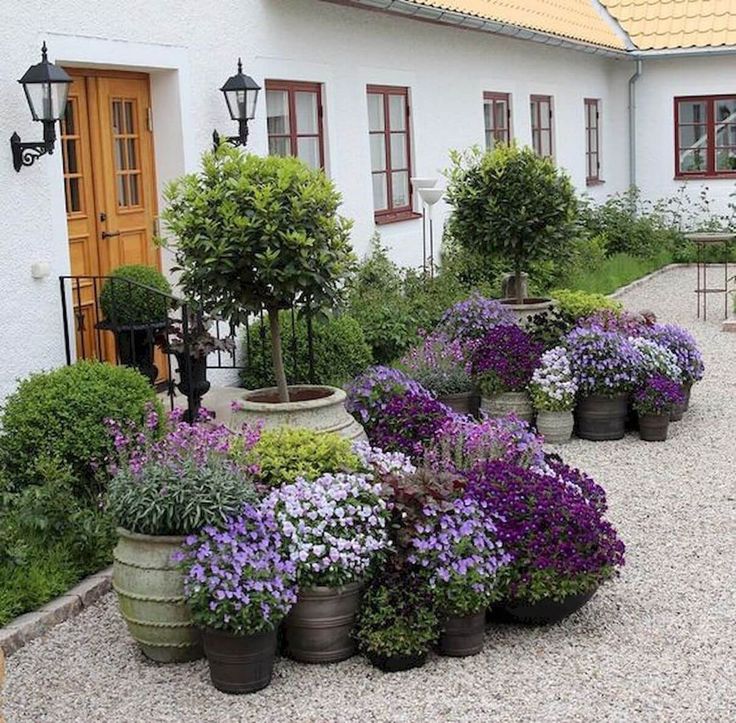
How does hydroponic gardening work? The hydroponic system works in that the roots are placed in a nutrient mixture and then are watered by the above. Hydroponics makes it easier to control than traditional farming methods. Also, hydroponic plants suffer fewer diseases than those grown in soil. You can also use it to protect your plants from severe weather. This article will explain the benefits of hydroponic garden and the reasons it may be the best for your growing requirements.
Hydroponic gardening means that plants are submerged in nutrient solutions.
The basic principle of hydroponics is that the roots are submerged in a solution containing nutrients. The roots in a closed environment such as a greenhouse are kept moist by water while the other parts of the plant get oxygen from the air. The solution also maintains a proper balance of nutrients and water. Hydroponic systems require pH levels to function properly.
This method requires much less water to grow than traditional gardening techniques. This benefits the environment as a whole and your wallet. Hydroponics requires a higher level of monitoring and micromanagement. Water-based nutrient solutions must be flushed and replaced frequently, and parts of the hydroponic system must be regularly cleaned and disinfected to prevent buildup. Hydroponics also carries a higher risk of waterborne disease, which can kill entire collections of plants in an hour.
It is easier than traditional farming methods to regulate.
Hydroponics offers flexibility, which is a key advantage. Hydroponic gardens can be kept in a greenhouse and have their own microclimates. There is no need to spray insecticides, as there are no pests. With this method, growers can grow crops year-round in a temperature-controlled facility. These gardens can also be operated in times of low or no sunlight.
Another advantage of hydroponic systems is that they use 98 percent less water than traditional farming methods. The World Health Organization states that 71% of the population has safe drinking waters. Half the world's inhabitants will live in water-stressed environments by 2025. Conserving water is more important than ever. It will also make agriculture less profitable.
Monitoring of nutrient levels is essential.

To make sure your hydroponic grow medium has the right nutrients, it is important to test pH. The pH scale ranges from 0-14. Some plants thrive better in acidic soils. There are various methods for testing these factors, including an electronic meter, test strips, and drop test kits.
Hydroponics requires constant monitoring to ensure optimal growth. Because water has a high level of nutrients, it is susceptible to microorganism contamination. Lack of soil barriers can lead to rapid spread of diseases. You need to keep an eye on the pH levels and nutrients in your hydroponics system. These conditions are best monitored by computers and sensors.
It is more healthy than soil-grown plants
Hydroponically growing plants is more beneficial than soil-grown ones. There are many benefits to hydroponics. For example, you can adjust the temperature of your hydroponics solution. This can help make the difference between healthy or unhealthy plants. Hydroponics can also be used to modify the pH of the solution. This can affect the availability of nutrients to plants. Hydroponics is generally more expensive that soil-grown plants.

The biggest difference between hydroponic and soil-grown plants is that hydroponics require much less maintenance than soil-grown crops. Soil is labour-intensive and takes a lot longer to cultivate. Because hydroponic seeds don't germinate, weeds can't take root or steal nutrients from your plants. Hydroponic plants can grow faster and require less space. Hydroponics can be cheaper than soil-grown plants and saves you time and money.
FAQ
Which seeds should start indoors?
A tomato seed is the best seed to start indoors. Tomatoes are easy to grow, and they produce fruit all year round. Plant tomatoes in pots and be careful about putting them in the ground. The soil could dry out if you plant too early. This could lead to root rot. Plant diseases like bacterial disease can quickly kill plants.
Which kind of lighting is most effective for growing indoor plants?
Because they emit less heat, floralescent lights are great for indoor gardening. They also provide consistent lighting without flickering or dimming. Both regular and compact fluorescent fluorescent bulbs are available. CFLs use up to 75% less energy than traditional bulbs.
What is the difference between hydroponic gardening and aquaponic gardening?
Hydroponic gardening relies on nutrient rich water rather than soil to provide nutrients for plants. Aquaponics uses fish tanks to grow plants. Aquaponics is like having your own farm in your home.
Statistics
- 80% of residents spent a lifetime as large-scale farmers (or working on farms) using many chemicals believed to be cancerous today. (acountrygirlslife.com)
- It will likely be ready if a seedling has between 3 and 4 true leaves. (gilmour.com)
- Today, 80 percent of all corn grown in North America is from GMO seed that is planted and sprayed with Roundup. - parkseed.com
- As the price of fruit and vegetables is expected to rise by 8% after Brexit, the idea of growing your own is now better than ever. (countryliving.com)
External Links
How To
How do I keep weeds from my vegetable garden?
The biggest threat to the growth of healthy vegetables is weeds. They vie for water, nutrients sunlight and space. To prevent them from taking over your garden, use these tips:
-
Take out all flowering plants
-
Clean up any plant debris at the base
-
Mulch
-
Get water regularly
-
Rotate crops
-
Don't allow the grass to grow too long
-
Keep soil moist
-
Plant early
-
Harvest often
-
Add compost
-
Avoid chemical pesticides
-
Plant organic vegetables
-
Buy heirloom seeds
-
Start small
-
Learn more about companion-planting
-
Be patient
-
Enjoy gardening!